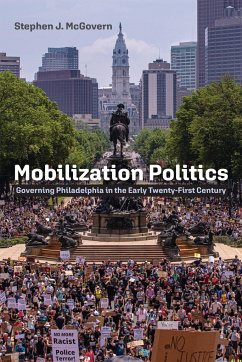
Defund
Conversations Toward Abolition
Versandkostenfrei!
Versandfertig in über 4 Wochen
45,99 €
inkl. MwSt.
Weitere Ausgaben:

PAYBACK Punkte
23 °P sammeln!
A collection of illuminating interviews with leading abolitionist organizers and thinkers, reflecting on the uprisings of summer 2020, the rise of #defund, and the work ahead of bridging the divide between reform and abolition. The 2020 uprisings against police violence launched a nation conversation about defunding the police and prisons, propelling the #defund movement into the spotlight. The backlash has been swift, beating back efforts to reallocate public funds away from police and other punitive carceral systems and into social welfare programs that provide care, stability, and communi...
A collection of illuminating interviews with leading abolitionist organizers and thinkers, reflecting on the uprisings of summer 2020, the rise of #defund, and the work ahead of bridging the divide between reform and abolition. The 2020 uprisings against police violence launched a nation conversation about defunding the police and prisons, propelling the #defund movement into the spotlight. The backlash has been swift, beating back efforts to reallocate public funds away from police and other punitive carceral systems and into social welfare programs that provide care, stability, and community. But as Calvin John Smiley reveals through pointed conversations with academics, activists, and system-impacted individuals, #defund was always more than a brief moment; it is part of an ongoing struggle against white supremacy, capitalism, police state-sanctioned violence, and mass incarceration. Through interviews with Marisol LeBrón, Dan Berger, Zellie Imani, and Olayemi Olurin, among others, Smiley considers how #defund can bridge the divide between reform and abolition, becoming a catalyst to help organizers realize abolitionist visions. Along the way, these rich conversations illuminate the long histories of systems of repression and protests against them; how policing serves as a colonial project in Puerto Rico and beyond; why creativity and music-making are essential to movement-building; and much more. Giving voice to those committed to abolitionist praxis, Defund is an essential tool for organizers as we imagine how defund goes from a hashtag to a movement to a reality.














